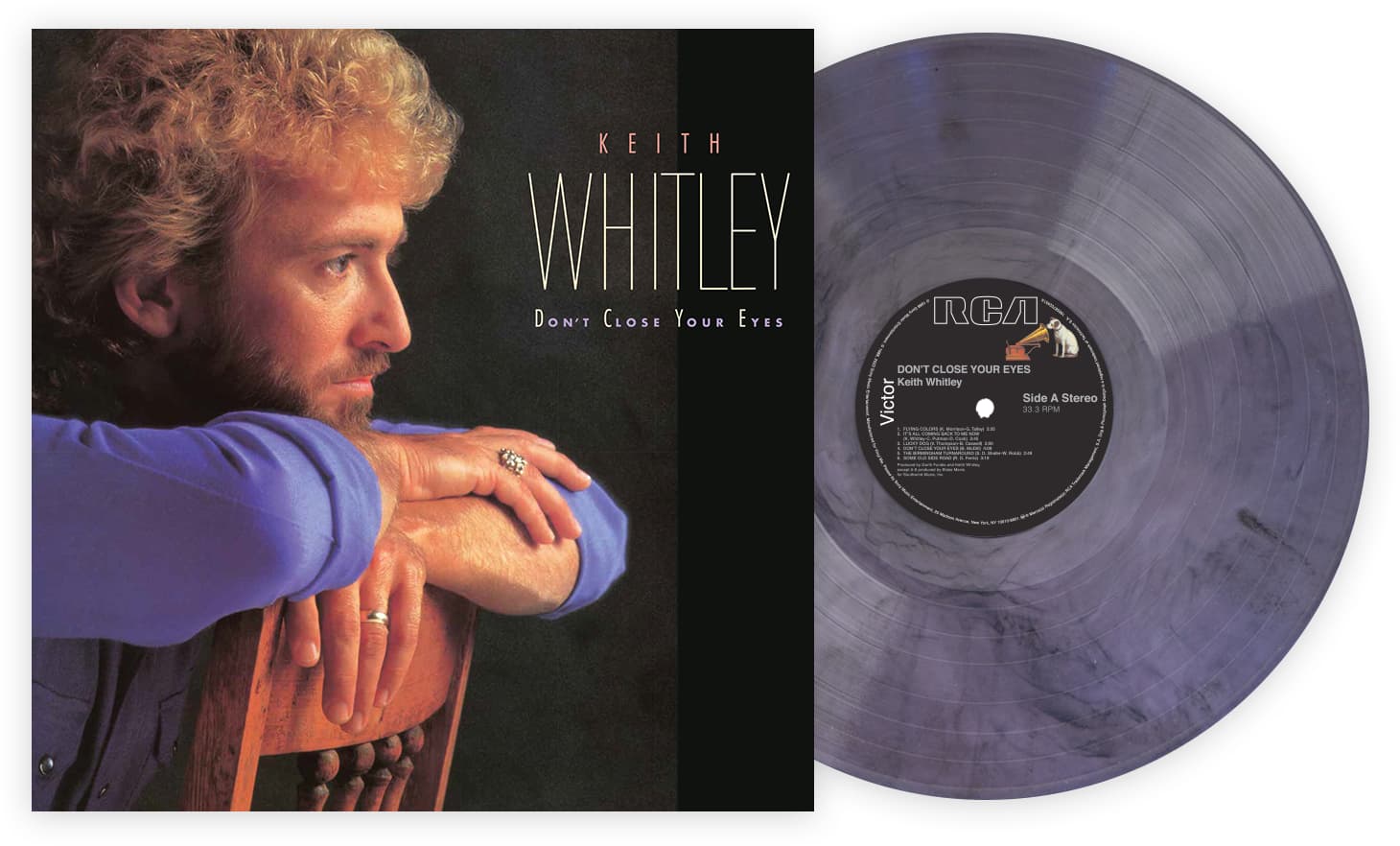
In the unforgettable year of 1988, a sound so pure and full of heartache took over the airwaves. It was a song called “Don’t Close Your Eyes,” and it catapulted a young, prodigiously talented singer named Keith Whitley to the pinnacle of country music. The track didn’t just climb the charts; it seized the No. 1 spot and refused to let go, ultimately being crowned Billboard’s No. 1 Country Single of The Year. For Whitley, a man who seemed destined for greatness from the moment he first picked up a guitar, it was the ultimate validation. But behind this monumental success lurked a devastating secret, a personal battle that would soon bring the entire country music world to its knees in a state of shock and sorrow.
Long before he became a Nashville superstar, Whitley was a musical force in his native Kentucky. He began his journey in the world of bluegrass, forming a band with another future legend, Ricky Skaggs. Their raw talent was undeniable, catching the ear of the great Ralph Stanley, who invited the pair to join his famed Clinch Mountain Boys. But Whitley’s ambition was grander. In 1983, he moved to Nashville to chase a mainstream country career, and it wasn’t long before he became an icon. With a voice that could convey a lifetime of pain and love in a single note, he was in a league of his own, charting 19 singles and cementing his legendary status.
His signature hit, “Don’t Close Your Eyes,” was a masterclass in emotional storytelling. Penned by the great Bob McDill, the song tells the agonizing tale of a man pleading with his lover, a woman who remains emotionally tethered to a past flame. Every time they embrace, he can feel her slipping away into a memory of another man. The song’s power is crystallized in its desperate, haunting chorus, a direct plea from a broken heart: “Don’t close your eyes. Let it be me. Don’t pretend it’s him, in some fantasy. Darling, just once, let yesterday go. And you’ll find more love than you’ll ever know.” The words were a gut-punch to anyone who had ever felt like a second choice, a stand-in for a ghost.
But the profound sadness in Whitley’s voice was not just an act. Away from the spotlight, the singer was fighting his own demons. The pressures of fame and a lifelong struggle with personal issues led him down a dark path of alcoholism. It was a battle he fought in private, even as his public star soared higher than ever. His inner turmoil was the one thing his powerful voice couldn’t conquer, a tragic secret that was about to erupt into a national headline.
Then, the unthinkable happened. On May 9, 1989, just a year after reaching the zenith of his career, Keith Whitley was found dead. The cause was alcohol poisoning, a sudden and brutal end to a life brimming with so much talent and promise. He was only 33 years old. The news sent a wave of grief through the music community and among his adoring fans. The tragedy was compounded by a cruel twist of fate: of the five chart-topping singles that would define his legacy, Whitley would only live to see three of them reach the top, his voice silenced forever, leaving behind a body of work as profoundly beautiful as it was heartbreaking.